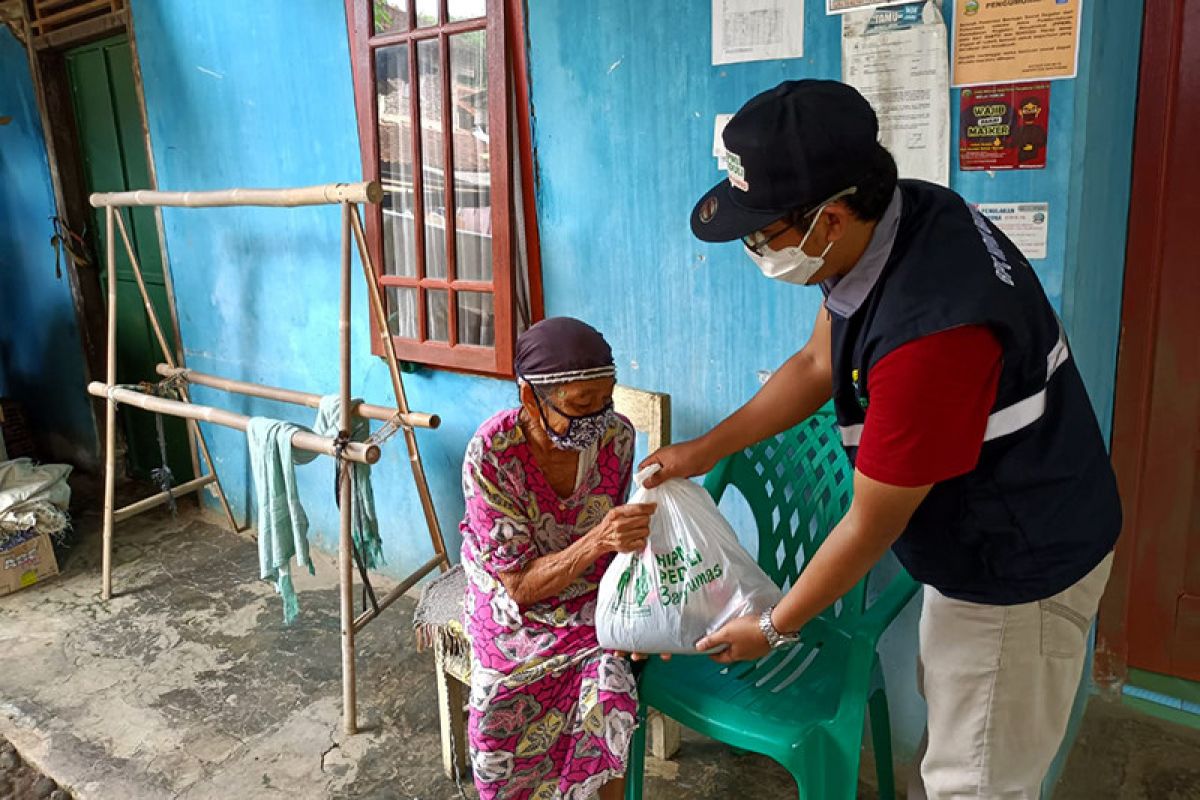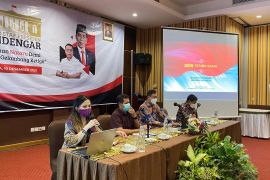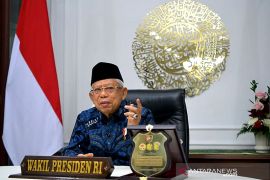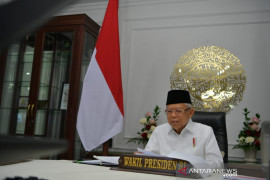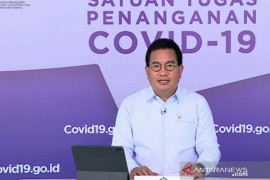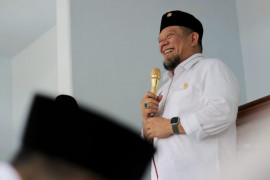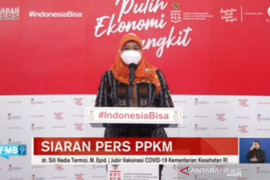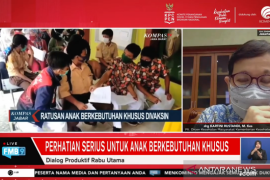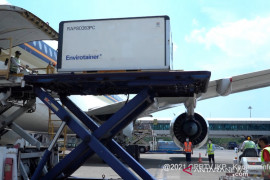The COVID-19 pandemic profoundly impacted the people.
Many suffer from job losses because their workplaces can no longer operate due to the pandemic.
On the other hand, the spike of COVID-19 cases resulted in an influx of patients in hospitals. There was also an increase in the number of people undergoing self-isolation.
Such condition can be seen in Banyumas District, Central Java. According to data from covid19.banyumaskab.go.id as of August 2 2021 at 12.08 local time, there were 3,146 COVID-19 positive cases, comprised of 1,184 patients in hospitals and 1,962 people undergoing self-isolation.
To date, the total of confirmed COVID-19 positive cases in Banyumas District are 22,718, with 18,983 (84 percent) of them recovered, while 589 (3 percent) died.
The various impacts of the pandemic drove some Banyumas residents to assist others affected or infected by COVID-19.
They worked together to pool donations for the affected in Banyumas District, as is being done by Banyumas People Against COVID-19 Forum (FMBMC).
Aan Rohaeni of FMBMC said that the creation of the forum was propelled by a desire to compel the communities and organizations to assist the government in tackling the COVID-19 pandemic.
"We need to express our gratitude and support to the government and the national defense force/police force in dealing with the COVID-19 pandemic, even though when doing social work, most of them use their respective institutions," Rohaeni said.
FMBMC continues to educate the public to adhere to health protocols, including activity restrictions, as an effort to suppress the transmission of COVID-19.
"What we emphasize is that if the people of Banyumas are 'eyel' (stubborn, red.) and they don't want to adhere to health protocols, then they got sick, the hospitals will not be able to accommodate them. We understand that people also need food and all kinds of things," she explained.
Her organization formed FMBMC to bridge the allocation of aid for the people affected or infected by COVID-19 through the national defense force/police force, so the aid is delivered to the intended target.
The choice was made because the national defense force/police force have a database of residents affected or infected by COVID-19, including those people who are self-isolating at their homes.
The database was compiled by village supervisory non-commissioned officers (Babinsa) and the police's security and public order officers (Bhabinkamtibmas) stationed in villages.
"Apart from distributing aid, in the form of food packages and medicines, we also allocate aid as boxed rice, as my office does every Friday. Indeed, ideally, the assistance provided is in the form of basic food packages, because it can be used for several days," she said.
However, she said she hoped that the boxed rice could ease the lives of people who have no time to cook for themselves.
Deputy Chairperson of the Muhammadiyah COVID-19 Command Center (MCCC) Banyumas District, Nur Fauzi, said he was involved with FMBMC, in a bid to collaborate with various communities to help the government tackle the COVID-19 pandemic.
"In addition to distributing medical supplies and food packages, we also provide education to religious leaders and community leaders about the efforts to handle and prevent COVID-19 in Banyumas. This activity is continuously carried out by individuals and communities who are FMBMC members," Fauzi said.
In addition to FMBMC, the Branch Management Board of the Indonesian Young Entrepreneurs Association (BPC Hipmi) Banyumas District also displays their concern to people affected by COVID-19 through the Hipmi Peduli (Hipmi Cares) program.
The Chairperson of Hipmi Peduli Brili Agung said various sectors of society were impacted by the COVID-19 pandemic, which has not yet ended, as well as by the community activities restrictions (PPKM) policy.
BPC Hipmi Banyumas distributed basic food packages to help those people affected by COVID-19 and PPKM in 27 sub-districts throughout Banyumas Districts, particularly to poor people who were self-isolating.
He noted that the work would be done in stages, the first stage being in Ajibarang District on July 16 2021, the second in Sumbang District on July 31 2021, and the others stages to follow.
He acknowledged that there has been a slight change in the recipients during the second phase of assistance. In the first stage, priority was given to underprivileged people who are undergoing self-isolation, but in the second stage funeral attendants and volunteer ambulance drivers who do not receive incentives are prioritized.
"Of course, we also aim to assist elderly people with no families, widows who live alone, and poor people. But before the aid is distributed, we first select, one by one, the potential beneficiaries based on data gained from the relevant agencies. We did those so the aid (is targeted at the right people)," he explained.
What FMBMC and the communities within it have done is just a small example of empathetic work being performed for those people affected or infected by COVID-19. There are also others who showed compassion during pandemic, done both individually or in groups.
Although when the end of COVID-19 occurs is still anyone's guess, the people have gradually learned from the pandemic, thus increasing their sense of empathy.
The spirit of collaboration which eroded due to globalization is once more flourishing amidst the COVID-19 pandemic. Without everyone working hand-in-hand, there will be no end to the disaster.
Collaboration in applying health protocols, including assisting people affected by COVID-19, is necessary in ending the pandemic and assisting the recovering economy.
Editor: Rahmad Nasution
Copyright © ANTARA 2021
